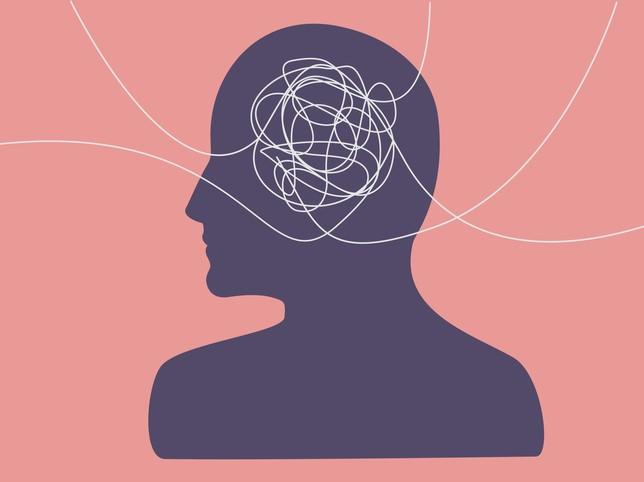Academia was unprepared for the wave of stressors that would emerge during the Covid-19 pandemic, from abrupt school closures and childcare disruption to economic loss, racial justice protests and global natural disasters. As a mental health educator and researcher, it is clear that our field is facing enormous mental health challenges, particularly for people in marginalised communities. We cannot simply pretend that things are normal in the academy any longer.
Despite growing awareness of a mental health crisis among undergraduate and graduate students, as well as faculty, much of higher education has remained silent or complicit in perpetuating stigma towards mental illness. I’ve seen this first-hand, even in my own field of clinical psychology. A reckoning with how we handle mental health in daily life in higher education is long overdue.
I decided it was time to do something to change the way we approach mental illness − by starting to (actually) talk about it. I began a free online course for the public called #talkmentalillness in the middle of the pandemic. I wanted to create and share conversations about mental disorders, symptoms and treatment that everyone could have the chance to watch, think over and, hopefully, talk about.
I conducted more than 30 brief interviews with scientists, mental health advocates and psychological treatment experts. They included public autism advocate Temple Grandin as well as Kay Redfield Jamison, who has written about her lived experience with bipolar disorder. Given that we often shy away from discussing serious mental illness in academia even when we come face to face with it in our own classrooms, I spoke with suicide experts and those who shared how to detect early warning signs of psychosis. These conversations also tackled age-old and important questions about how we should (and should not) try to be happy.
These interviews raised three big questions for the sector. I hope they spark conversations about how academia might reimagine what mental health looks like for all.
1. Why is mental illness so harshly stigmatised?
The word “stigma” comes from ancient Greece, referring to a literal mark or “brand” given to social outcasts. Stephen Hinshaw, author of The Mark of Shame, whom I interviewed in the #talkmentalillness series, notes that alongside homelessness and substance abuse, mental illness receives perhaps the most “extreme castigation”.
Despite progress in diagnosis of and treatments for psychological disorders over the past 50 years, stigma about mental illness has increased in the US. Our own state and federal policies continue to perpetuate this by restricting the insurance and employment rights of those who disclose mental health diagnoses.
But what can we do? We can all change our behaviours, big and small, to counter mental illness stigma in academia. This includes changing public messaging of “the face of mental illness” as incompetent or violent individuals often relegated to a distanced “them”, to more accurate images of kind, competent people who are part of a collective “us”. I try to talk about this as an instructor and mentor by sharing stories of academics with mental illness to humanise and normalise their lived stories (such as Elyn Saks) or share science-based data documenting the common occurrence of mental disorders in academics, to help normalise it.
2. Why does mental illness disproportionately impact marginalised groups?
Members of marginalised racial and ethnic minority groups were hit hardest by the Covid-19 pandemic. Concerns have been raised that the pandemic might worsen existing disparities in mental health and treatment access, on top of higher rates of Covid-19 illness and mortality among black and Latinx communities.
Factors contributing to higher risk of mental illness among under-represented groups are multifaceted and span deeply entrenched economic and social structures in the academy and beyond. Academia must understand these issues and discuss them openly. This includes difficult conversations about inequalities embedded in HE that discriminate against students and faculty of colour and/or from underprivileged socio-economic backgrounds.
In the #talkmentalillness series, this included Steve Lopez discussing the need to improve mental health services in Latinx communities and Lauren Ng on the pressing issue of global mental health disparities. Academia must take ownership and start initiatives to learn more about racism’s impact on the mental health of one’s colleagues and students, and make time to understand what antiracism looks like.
The sector must also cultivate open acknowledgment of and support for its students and faculty who have endured the racist and xenophobic interchange sparked by Covid-19. It is firmly time for academia to talk about racism’s impact on mental health within the ivory tower.
3. What can we learn from the science of happiness?
As a society, we are fascinated by understanding and finding happiness. But what exactly is happiness, and how can we pursue it? Recent research on the science of happiness has taught us that the things we often think will make us happy − good grades, job promotions (including tenure) or salary increases − are transient at best. We have also seen that the more we want to become happy, and the harder we try, the less happy we are.
Happiness experts have shown us that science can teach us what really makes us happy and provide strategies we can implement easily in our daily lives. These science-based happiness practices include spending money on experiences and other people rather than on ourselves or on things, keeping daily gratitude journals and focusing on the present moment. Another is accepting and embracing negative feelings or thoughts rather than pushing them away or criticising yourself.
These findings are no secret and are freely available for all, from online resources provided through the Greater Good Science Center, conversations such as the Happiness Lab podcast and elsewhere. It is eminently possible for us to empower ourselves and our students to make happiness less elusive and more attainable in everyday life.
June Gruber is a psychology professor at the University of Colorado Boulder. Her research explores the science of emotions and happiness and their links with mood disorders in adolescents and adults. She is working to understand the mental health crisis in college students before and during Covid-19; you can donate here to support this work.
If you would like advice and insight from academics and university staff delivered direct to your inbox each week, sign up for the Campus newsletter.




comment1
(No subject)